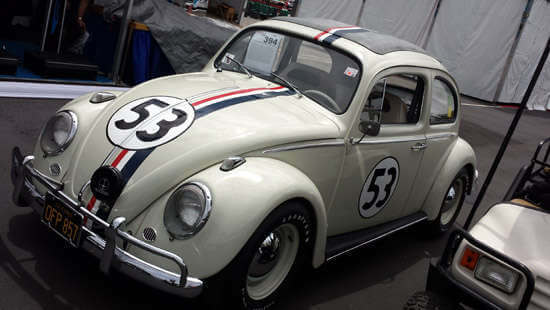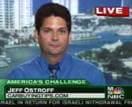Could the EPA be Partially to blame for the Volkswagen Dieselgate emissions scandal?
Improvements needed to current standards, other cars should be retested
It appears that by using defeat devices in their diesel powered TDI cars, VW was pretty easily able to cheat the EPA testing, but therein is our dilemma. Why are the EPA emissions tests setup in such a way that they were so predictable under lab conditions, easily gamed and apparently not collecting data under real world driving conditions that could have refuted any lab tests? Herbie is probably hanging his head and crying by now.

Why were others able to measure higher emissions than the EPA?
Ever since the Dieselgate scandal broke on September 18, I had been wondering how can the EPA measure one set of emissions, but someone else comes along later and measures emissions that are so much higher? Maybe it was because they had a better testing methodology than the EPA.
Why weren't real world tests used to check emissions levels?
One reason I say that the EPA is partially to blame is because they apparently don't test in real world conditions. They test in predictable, special test mode conditions. That's why it was so easy for a dumb car (Volkswagen's TDI engine) with no eyeballs to measure a few parameters and figure out on its own that it was in an EPA test mode and cause the dirty parts of the engine to shut down under "test mode." It came out smelling like a rose.
Why real world testing is so important in engineering
As a former Motorola engineer myself, I know about this all too well. Every product simulates well in a lab, but how does it really perform under load during real world use by consumers? When we built our phones and 2-way radios at Motorola, we tested all the internal modules. The completed boards travel down the factory lines to test stations and finally assembled phones are subjected to huge suites of computerized tests to exercise the circuits and declare the phone ready to ship.
But that is still in a pristine factory setting, so we wanted to abuse the phones the same way users do. What we also did is package the phones into their final retail box packaging and run them through tough advanced life testing and vibration to simulate any failures we might see by delivery trucks driving around on rough roads.
We also performed drive team testing on cell phones. Driving all around the city and collecting signal data from the towers from the real world point of view as seen by the end user. So, likewise, the EPA would benefit from additional real world testing of just hooking up their emissions testing gear and driving the car around the city for a while, just like a real car owner would do.
Drive the car to lunch, drive it to the beach, through some rain storms, test it in the morning on a cold winter day, or in the desert and measure the level of emissions that are coming out of the tail pipe under all of these conditions. These testing scenarios are much more accurate in my opinion.
I'm thinking along the lines of Herbie The Lovebug. He has a mind of his own and all he has to do with his onboard computer is measure a few telltale parameters and say to himself, "Hey, the EPA has me under test, because I recognize these parameters as non-standard driving attributes that I would never see from a VW owner. So now I'll just purposely reduce the amount of emissions until I detect the EPA test mode is done."
The EPA could have avoided this situation if they added a suite of non-intrusive emissions measurement testing during real world driving as a sanity check. This need not be the golden standard measurement that they base their approval on, but it should certainly be implemented by the EPA to check if car makers are cheating their systems. They need to get some real world driving measurements, where Herbie cannot detect that he is being tested. Maybe they could also come up with a more random way to obtain the test cars anonymously.
These sanity check measurements could then act as checks and balances against any data they collect in their normal test modes. This way, if Herbie detects he's being tested by their lab tests and reduces his emissions, you can use the real world data. You'll catch Herbie once he's back on the road, spewing his pollution in real world mode.
If the EPA simply boosted their testing methodology a bit, they might not be fooled again and we can all rest assured that the measurements obtained are accurate.
EPA should have been aware of defeat devices
Since the phrase "defeat device" is already written into the regulations as a forbidden item, this means that the regulatory agencies must have already known that these devices exist. This falls under the fool me once shame on you, fool me twice shame on me category.
We know that Volkswagen is not the first car manufacturer to employ defeat devices and it won't be the last. They are not just used on diesel engines. This was a big wakeup call to the EPA and other testing agencies. Maybe now is the time to review and improve their testing methodologies and maybe revisit previously tested cars with these new testing methodologies. Lets see who else fails!
I think this story is just beginning to unravel. When the dust settles and the Justice Department and Congress investigate the VW scandal, my bet is that we'll see other car makers scrambling to fix issues. Swift changes are long overdue at all the regulatory agencies.
I also predict this may be the beginning of the demise of smaller diesel cars here in the U.S. It is just too much of a premium to design diesel engines to be clean and not worth the extra $3,000 premium on the smaller diesel cars to justify their cost. This scandal may have been the wakeup moment the car industry needed.

About The Author: Jeff Ostroff
A lifelong consumer advocate with over 20 years of unparalleled expertise, Jeff is the Founder, CEO and Editor-In-Chief of CarBuyingTips.com. As chief consumer advocate, he oversees a team of experts who cover all aspects of buying and selling new and used cars including leasing and financing.
For decades, Jeff has been the recognized authority on vehicle purchasing, sought out often by the media for his decades of experience and commentary, for live call-in business radio talk shows and is cited often by the press for his expertise in savvy car shopping methods and preventing consumer scams and online fraud. Jeff has been quoted in: CNN, MSNBC, Forbes, New York Times, Consumer Reports, Wall Street Journal and many more.
Jeff also has extensive experience and expertise in new car brokering and selling used cars for clients on eBay and Craigslist. Connect with Jeff via Email or on Twitter.







